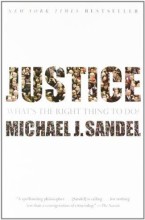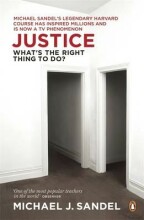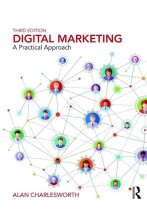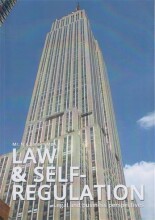Summary: Justice: What's The Right Thing To Do? | 9780374532505
- This + 400k other summaries
- A unique study and practice tool
- Never study anything twice again
- Get the grades you hope for
- 100% sure, 100% understanding
Read the summary and the most important questions on Justice: What's the Right Thing to Do? | 9780374532505
-
1 Doing the right thing
This is a preview. There are 8 more flashcards available for chapter 1
Show more cards here -
How called Thomas Sowell price gouging?
An emotionally powerful but economically meaningless expression that most economics pay no attention to, because it seems to confused to bother with. If there is a lot of demand, suppliers from outside will provide more goods and price will stabilize again. -
What said Jeff Jacoby about price gouging?
It isn’t gouging to charge what the market will bear. It’s how goods and services get allocated in a free society. His conclusion: “Demonizing vendors won’t speed Florida’s recovery. Letting them go about their business will.” -
Which questions arise after the hurricane Charley about morality and law?
Is it wrong forsellers of goods and services to take advantage of a natural disaster bycharging whatever the market will bear? If so, what, if anything, should the law do about it? Should the stateprohibit pricegouging , even if doing sointerferes with the freedom ofbuyers andsellers to make whatever deals they choose? -
Around which three ideas are the arguments for and against price-gouging?
Maximizing welfare, respecting freedom, and promoting virtue. -
What said modern political philosophers like Immanuel Kant?
Theprinciples of justice thatdefine our rights should not rest on any particularconception ofvirtue , or of the best way to live. Instead, a just societyrespects each person’s freedom to choose his or her ownconception of the good life. -
3 Do we own ourselves? / Libertarianism
This is a preview. There are 7 more flashcards available for chapter 3
Show more cards here -
What is libertarian theory?
-Humans have fundamental right to liberty— the right to do whatever we want with the things we own, provided we respect other people’s rights to do the same.
-minimal state that protects private property from theft, keeps peace and enforces contracts. -
What argued Milton Friedman (1912-2006)?
objects to minimumwage laws on similar grounds. Government has no right to preventemployers from paying anywage , however low, that workers are prepared to accept. The government alsoviolates individual freedom when it makes laws against employmentdiscrimination . Ifemployers want todiscriminate on the basis of race, religion, or any other factor, the state has no right to prevent them from doing so. InFriedman ’s view, “suchlegislation clearlyinvolves interference with the freedom
of individuals to enter intovoluntary contracts with one another. -
What are 3 types of policies and laws that modern states commonly enact reject?
1. Nopaternalism (against laws that protect people fromharming themselves)
2. No morals legislation
3. Noredistribution of wealth or income -
5 What matters is the motive / Immanuel Kant
This is a preview. There are 15 more flashcards available for chapter 5
Show more cards here -
What said John Locke (1632-1704)?
Herejects the notion that we may dispose of our life and liberty however we please. ButLocke ’s theory ofunalienable rightsinvokes God,posing a problem for those who seek a moral basis for rights that does not rest on religiousassumptions -
Why is it rejected by Kant?
1. Pleasure doesn’t make it right(are variable and contingent)
2. Moral principals form desires we happen to have is wrong way thinking about morality
3. Preferences rejected influences freedom(act of obedience)
- Higher grades + faster learning
- Never study anything twice
- 100% sure, 100% understanding
































